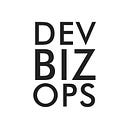Developer Culture in Singapore
Fun fact about Singaporeans, they are the fastest walkers in world according to the British Council. I know because I walked about 40km rushing between meetings the week before, and got outpaced by everyone.
Back in March I wrote about the developer culture of Hong Kong. The idea was to provide a more local, on-the-ground perspective of what developers experience than what is captured in most online developer surveys.
But how similar is Singapore to Hong Kong? Both have amazing airports, the architecture is outstanding, and the business climate is friendly. They also share similar developer attitudes, but it is not entirely the same as I share.
The graduate pipeline is growing…
Computer science has been seeing a significant bump in interest of late. The Singaporean higher education system has two main categories; Polytechnics and Universities. The differences are not so important in this context, both provide a quality education and job opportunities.
Since 1993 there has been a 4X increase in computer science graduates. In recent years, while fields like law have seen decreasing interest, the NUS (National University of Singapore) School of Computing opened 520 places in 2017, an increase from 370 places last year.
And job prospects have improved…
Pay to start out as a developer is quite enticing. Graduates from NUS’ computer science course saw a pay rise, by 8.1% from $3,700 to $4,000. This is one of the highest percentage increases of any other field and the average salaries are trending close to that of law and medical grads.
But the struggle is real…
There are about 92,000 IT and software professionals in Singapore according to the Ministry of Manpower, or about 2.5% of the total workforce. Given that covers many disciplines, the number of actual professional developers will be smaller. A search for software jobs on JobStreet.com showed over 6,800 openings. In an already tight job market, this means that there simply is not enough local talent graduating from local universities to meet the demand.
Where are the devs going….
There are three major trends in Singapore. First, the financial services sector has woken up to the fact that they need local developer talent. One head of engineering shared they have been ramping up the local teams and rapidly converting contractors to full-time employees. Second, the startup scene has taken off to unprecedented levels with significant funding and talent pouring into the ecosystem. Third, local firms outside of financial services and tech are realizing they too need to innovate and are now hiring developers.
Financial Services is the new hotness…
The financial services sector was always the safe bet for employment in Singapore, but now they are becoming employers of choice for developers. The sector has shifted away from outsourcing and contract labor towards insourcing. The need to deliver better customer experiences faster is forcing banks and insurers to undergo rapid digital transformation. That means taking ownership of the end-to-end product experience from design to development to production and acting on feedback and market indications even faster. Agility is the game, requiring developers to be closer to the business and closer to customers.
But startups are even hotter…
The top 15 best funded startups raised over $10 billion USD, including Grab, Sea, AirTrunk and Trax. Then there are exits like Lazada to Alibaba that help fuel the local startup community with more money and talent. This has been a rapidly developing trend fueled by the government which has created more incentives for entrepreneurs and encouraged more startup activity. This has led to an explosion of startups, some poised to be the next unicorns.
Every company is a tech company….
Logistics, telcos, retail, and consumer goods are just some of the sectors that are realizing the need for developers. Some are opening up innovation centers and creating small teams to dip their toes into software development. While they rely on more packaged apps and agency / outsourced work, they are realizing they too need to be more responsive to customer needs in a way that simply cannot be delivered through third parties.
So now we have talent armageddon…
It is not a war for talent, it is more like a bloodbath. Additionally much of the local talent is not at the level needed by companies. One engineering manager quipped that out of 50 resumes he gets, 48 are non-developers. They are generalists. Particularly in new areas such as DevOps and Microservices, there is not enough senior level talent, forcing companies to leap bureaucratic hurdles to secure Employment Passes to bring in overseas developers.
And the culture does not help…
What else drives this talent gap? The truth is that developers are still not highly prized professionals. Similar to Hong Kong, many want to rise up the management ranks as the fastest way to earn a high salary given the incredibly high cost of living that suppresses real earnings. Plus, coding was thought of as something you simply shipped over to low-cost regions like India or Indonesia, so there is still a perception gap.
Hong Kong and Singapore certainly share a lot in common. What is striking however is the local support in Singapore for startups and the greater investment in insourcing. While the talent supply remains a constraint on growth in the developer community, there is no doubt that Singapore will continue to be a leading regional and global technology innovation hub.
If you have traveled to Singapore, what are your impressions of the tech community? For those in Singapore, do you agree with the points I shared?
Why are multiple programming languages used in the development of one product or piece of software?
Came up in a recent conversation about Stack’s own codebase…
We help IT leaders in enterprises solve the cultural challenges involved in digital transformation and move towards a community based culture that delivers innovation and customer value faster. Learn more about our work here.
